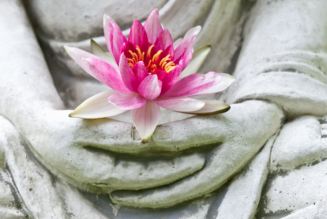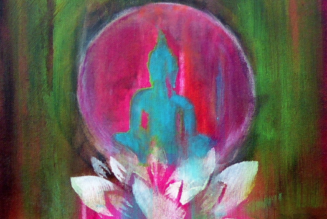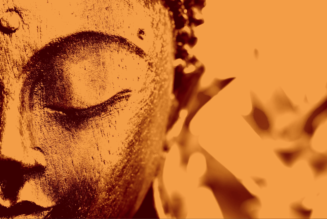The Story Of Disease
There’s a fascinating story I’ve heard that describes the “Summary of The Process of Disease Formation,” according to Ayurvedic Medicine. First, disease begins when we forget our true nature. This is known as the “Primordial Cause” of disease. We forget how we as spirit are spiritualizing through the human experience. According to Marisa Laursen, a professor at the California College of Ayurveda, “the mind is a place of purity and clarity. The thought comes along and disturbs the mind.”
the “Primordial Cause” of disease.
“Thought is part of ego and the chatter becomes the smoke screen that disturbs us from the true self.” The ego creates stories and draws upon attachments to the past and projections of the future, constantly shape-shifting and vacillating between the two; preventing us from being absolutely absorbed in the present moment because it fears its cessation. There is a sacred text called the Yoga Sutras of Patanjali and the first line of the yoga sutras states “yoga chitta vritti nirodha”, which means that “Yoga (union/merging) involves the cessation of the disturbances of the mind.” There are 195 sutras or verses and of the 195 versus the 194 verses show us how to accomplish verse number one.
“Ayurvedic Living” By Dr. Marc Halpern
The process and movement of time, which is known as “Parinama” or that which relates to things that change, is the next cause and contributing factor. There are two aspects to time. One relates to Linear time, which is out of our control because this involves the cycles of the earth revolving around the sun and the changes of season. The second form of time consists of Biological time, which, though is in our control, it is dynamic. This is because the pacing of biological time changes with response to our motion and as motion increases, the rate of biological time increases. With this, the body either ages faster when we are moving faster and more slowly when we slow down. A busy mind causes us to perceive time as moving quickly and a mind that is still and more anchored in the present moment, time slows down. When the mind moves quickly, the body will reflect this and as the mind moves slower, the body will reflect this too.
“and a mind that is still and more anchored in the present moment” …
Once we experience a busy and chaotic/distracted mind, we come to the next step where disease develops. This experience is called “Prajnaparadha” or “crimes against wisdom/failure of intelligence”. What happens here is that on some deep level we know what is right for us but we allow our minds to convince us otherwise and we make opposite choices. Our intellect is constantly being used to make decisions and it prefers to choose between pleasure and harmony. This is where the ego feeds off the senses and uses the senses to support its own happiness somehow as it pursues outer pleasures to satisfy itself and perpetuate its own existence through separation/division. Dr. Marc Halpern, President and Founder of the California College of Ayurveda, says “While the ego and the senses speak loudly within the great hall of the mind, the soul speaks in whispers.” When we allow our inner wisdom to be ignored, it’s because we have given our power away to our senses and this leads to the next place where the five senses, the eyes, ears, mouth, the skin, and smell dictate our interaction with the world.
Amrit Nectar
Enhances coordination of mental and physical functions; supports balance between the heart and the brain; powerful antioxidant.
This is called “Asatmendryartha Samyoga” or “unwholesome conjunction of the senses with their objects of their affection.” Dr. Marc Halpern further explains: “When people take into their body that which does not match their constitution, they are considered misusing their senses. In addition to taking in what is not harmonious, a person may also take in too much or too little of what is energetically harmonious for that person. This too will cause disease.”
… only Ayurveda has a full definition of what is health.
What is amazing is that of all the healthcare systems in the world, only Ayurveda has come up with an adequate and full definition of what is health. Other systems, like Allopathy, define health as the “absence of disease” but Ayurveda says this “Sama Dosha Sama Agnis ca Sama Dhatu Mala kriya Prasannatmendriya Manah Svasta itiabhidyate” which means “balanced constitution(Vata/Pitta/Kapha), balanced digestion, balanced tissues, balanced waste products (urine, feces, sweat), balanced senses (eyes, ears, nose, mouth and skin), balanced mind (sattva, rajas,tamas), and alignment with spirit is what healthy is.” Any disturbance or abnormality in any of these is an indication of disease.
Stages Of Disease …
Additionally, Ayurveda has broken down disease pathology into six stages, known as “Samprapti.” Each of the stages can be understood as such: Accumulation, Aggravation, Overflow, Relocation, Manifestation and Diversification. There is an image that helps to grasp these concepts more easily. Let’s say we have a tree and the roots are the doshas (tendencies towards imbalances based on constitutional determinants, of Vata, Pitta and Kapha) and these roots are below the surface. What is above the surface is the trunk of the tree and this represents Overflow, where the blood and plasma exist as part of the circulatory system. As the tree progresses upward, the branches form and this is known as the Relocation Phase. From the branch, we have a bud and this budding is the Manifestation of the disease. After it starts to bloom and this blooming is the full-fledged experience of the disease, known as Diversification. According to Ayurvedic prevention and management of disease there is a natural cycle that happens throughout the year and with each season. As one season is present, that is the Aggravated Phase and the season that just left has now been Alleviated but while we are in the Aggravated Phase the next season is already Accumulating.
Herbal Di-Gest
Supports improved digestion and balanced appetite; helps with gas, bloating, and discomfort.
A Closer Look
As each Dosha (biological constitution, that is prone to decay) undergoes this experience of time/season change, the natural Alleviation of particular symptoms occurs. IF or WHEN, for some reason or another, this cycle is interrupted and Alleviation is prevented, we enter into Overflow and this is when a disease is really progressing. In other words, it is during the Accumulation and Aggravation phases that this is the beginning of a disturbance that begins in the digestive system. Commonly ignored, may appear subtle or overt, disturbances would be: sluggish digestion (weak/low digestive fire = Manda Agni), gas/dry stools (variable digestion = Vishama Agni), and/or burning indigestion (sharp digestion = Tikshna Agni). Low digestion relates to Kapha. Variable digestion relates to Vata and sharp digestion relates to Pitta. Balanced digestion is called Sama Agni where there are no digestive disturbances. It is during the Accumulation and Aggravation phases that we can catch a disease from further progressing but we are usually too busy and less sensitive to notice and we keep pushing ahead until other symptoms develop and scream for out attention. It is at these stages that, according to Ayurveda, that we can simply balance our diet and lifestyle, making better choices that we can prevent diseases from increasing. When the symptoms have progressed and they enter into the circulatory system then we have to intervene with herbs/medications and other therapies. Regardless of what stage a disease is at, diet and lifestyle must be adjusted in order to secure the optimization of health. Herbs/medications alone are not meant to do the job completely as we are whole beings and not just treating parts of a body/mind. This is the holistic approach and effort. Even when herbs are administered, diet and lifestyle provisions are made to ensure success or at least make some improvements.
Disease starts out as “dis-ease”.
Prognosis is about the likelihood of improvement and/or correction of a condition. Disease, depending on what stage of development it is at can always be managed. There are diseases that are Easy to cure, Difficult to cure, Incurable but not terminal and Terminal. Disease starts out as “dis-ease” and picks up momentum until it has completely manifested itself as disease and by returning ease through our diet and lifestyles we can encourage disease to return back to ease. Importantly, this ease also involves supporting the well-being of a person through their state of mind. I’ve said for many years now, that it’s about the little things that build up to the big things.
There are of course extenuating circumstances that are to be factored into all this, circumstances such as external factors like accidents and other outside variations of trauma that can influence health and disease pathology. Karma falls into this and it is important to remember that karma is not about blame or judgment but about balance. Karma is not about punishment or reward, it is about balance. In Ayurveda and Yoga, we know that karma is a result of selfish acts and by being selfless we can release ourselves from the cumulative effects and experiences of karma. This is a discussion that requires further exploration at another time and escapes the main purpose of this present article which is meant to give a general understanding and summary of the cause of disease. This current article is meant to share a perspective and expand our lens on the possibilities that surround dis-ease leading to disease. Simply, we can always either prevent or manage.
In summary, take note of what your senses are doing. Take control of them. They are like the five horses without a charioteer and once the charioteer takes hold, the horses can be guided. Similarly, our innermost and highest version of ourselves is the charioteer and when we take hold of the five senses we can get a better handle on our lives. Ayurveda has in place a five sense therapy protocol designed to support this process and journey. With regard to other stressors, by reducing the stress we experience as the mind stresses because of past and future projections and attachments, we can feel more in touch with what is happening to day and embrace the grace of the moment that invites us to be intimate with it. Practices such as, yoga, Ayurveda, meditation, Tai Chi, and other holistic modalities are meant to support us in remembering who we are and what we have come here for. When we remember who we are by escaping the illusions and story-telling of the mind rooted in the attachment to past and future events, we will find our interactions with the world coming from a more wholesome place and the choices we make will be more in alignment with what is true in our hearts and not what we think is true in our minds.
About The Author

Vishnu M.Ayu, BA Psy., LMT, CSP, E-RYT, CS2, is a licensed massage therapist with more than 15 years of experience and Master’s of Ayurveda/Yoga from Hindu University of America. Vishnu is currently enrolled in California College of Ayurveda with the intention of obtaining his doctoral degree in Ayurveda. He is the owner of ‘Still Point Ayurveda’ Center and offers Ayurveda out of a few locations. To learn more about Vishnu and his practice you can contact him at Still Point Ayurveda.



![Female Health: Amenorrhea [cessation of menses] – An Ayurvedic Perspective](https://healthyayurveda.com/wp-content/uploads/2015/07/1.-Amenorhea--327x219.png)




